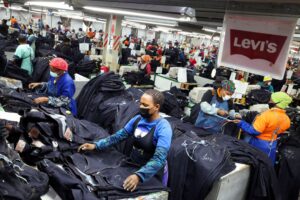
Bloomberg
World’s Longest Short-Selling Ban Coming to an End in Korea
(Bloomberg) — Starting next week, investors in South Korea will be able to short sell the nation’s biggest stocks as Seoul ends the world’s longest pandemic-imposed ban on the trading strategy. That’s much to the dismay of retail traders, who now dominate the local market.On May 3, Korea is set to partially lift the ban it imposed in March last year on the key hedge fund strategy. When it does, individual traders — who have come to take up about three quarters of the market’s daily trading volumes amid the pandemic — will find a once-insurmountable trading strategy a lot easier to carry out, thanks in part to an increased number of brokerages queuing up to lend them shares.Still, many of them say they would be at a disadvantage against larger institutional investors and would rather prefer that short-selling, which they believe would undercut their profits, be kept banned in the world’s best-performing major market of 2020.Hedge funds have much more “advanced information access, financial power, and trading techniques,” which means that even when allowed to sell short, retail investors don’t face a level playing field, said Jung Eui-jung, head of Korea Stockholders Alliance, a group of influential day traders.“Few countries are more hostile toward short-selling than South Korea, where many investors have been hurt by it,” he said, referring to massive declines seen in the past in many stocks when short-selling was permitted — among them biotech firm Celltrion Inc.The group, which earlier this year launched a “bus” campaign to get its anti-short-selling message heard, is seeking “fairer” rules around the practice, among them that individual investors have access to the same high levels of margin loans as their institutional counterparts.READ: Short Sellers Under Siege Everywhere Have It Really Bad in KoreaSouth Korea, like many countries around the world, banned short-selling to tame markets hit by the pandemic early last year. That ban led to foreign investors fleeing but also saw retail investors stuck in Covid lockdowns and armed with cheap trading apps pick up the slack to drive Korea’s stock market.After having extended that temporary ban twice since then, the Asian nation is now the only major market to have stuck with its prohibition: Italy and France, for instance, only maintained the restriction for a few months while Indonesia, the last holdout besides Korea, said earlier this year that it will allow short-selling in some stocks.More PowerCome Monday, investors will be allowed to borrow shares on the benchmark Kospi 200 Index and the small-cap Kosdaq 150. This represents 22% of Kospi stocks, or 88% of Kospi’s market value. A decision on whether to allow short selling for other stocks is expected to be taken later.After going through a mandatory 1.5 hour short-selling training session, retail investors, dubbed “ants” for their herd-like behavior, will find it a lot easier to bet against hot stocks than before.That’s because they can now sell short up to 30 million won ($27,000) of stocks with that limit going up over time, and all 28 of the country’s top brokers will lend them stocks — up to a maximum of 2.4 trillion worth of shares. Previously, just six brokerages offered retail investors short-selling privileges, and on offer was just a maximum of 20.5 billion won of stocks.The ban is set to be lifted at a time when stocks in South Korea have surged to record highs this month. The benchmark Kospi Index has climbed 12% so far this year, adding to its 31% surge in 2020. It was down 0.2% in early trading on Tuesday, while the broader MSCI Asia Pacific Index dropped 0.3%.“Young stock traders who entered the markets last year haven’t experienced a market crash, so when short-selling resumes, markets could crash suddenly and they can get burnt,” said Jung of the Korea Stockholders Alliance.Electric-vehicle battery supplier SK Innovation Co., bulk shipping liner HMM Co., biopharma firm Medytox Inc., cosmetics company Amorepacific Corp. and Korea Aerospace Industries Ltd. are among firms whose share prices are looking overvalued versus their peers, and could thus be a target for short sellers, Kim Min-gyu, a quant analyst at KB Securities Co., said in a report.Overall, investors appear less concerned about the impact on the broader market.The last two times short-selling was restored after a ban, Korea’s equity market corrected and volatility increased, strategists at Goldman Sachs Group Inc. wrote in a report earlier this month. Still, stocks managed to regain that lost ground after about a month, they noted.The strategists retained their overweight stance on South Korean stocks, and said they expect foreign flows to pick up once short-selling resumes.“We all understand in the midst of Covid-19 extreme volatility, the need for temporary measures,” said Lyndon Chao, Hong Kong-based head of equities at ASIFMA, a regional financial industry association. “But Korea has put in place the longest short selling ban that we’ve seen.”“The market currently is at a record level, volatility has come down significantly back to pre-Covid levels, so the industry is encouraged to see the short-sell ban now being lifted,” he added.(Updates prices, adds Kospi’s move Tuesday in the 12th paragraph.)For more articles like this, please visit us at bloomberg.comSubscribe now to stay ahead with the most trusted business news source.©2021 Bloomberg L.P.




